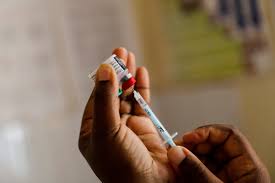
Nigeria has begun rolling out a childhood vaccination program to help protect its youngest citizens from malaria, a disease that claims hundreds of thousands of lives each year. The initiative focuses on giving the first dose of the vaccine to infants at around five months old. Among the first regions to benefit is Bayelsa State, known for high infection rates.
Mothers are welcoming the new measure. One mother, who had already treated her baby twice for malaria, expressed relief that she may no longer face repeated bouts of illness. Another mother, visiting the clinic, stressed the urgency of saving children’s lives and ensuring they have a chance to thrive without constant fear of mosquito-borne infection.
Local health officials acknowledge the scale of the problem. Malaria rates have kept families trapped in cycles of sickness and poverty, particularly young children and pregnant women. The disease contributes to job absences and lost income, compounding economic hardships.
However, authorities face challenges, including widespread misconceptions about vaccines. Some religious groups and skeptical community members worry about side effects, fertility issues, or question the necessity of preventive measures. Healthcare workers and the state’s health commissioner are committed to overcoming these barriers through education, outreach, and trust-building. They hope that, with time, more families will embrace vaccination, ultimately helping Nigeria reduce its staggering malaria toll.
